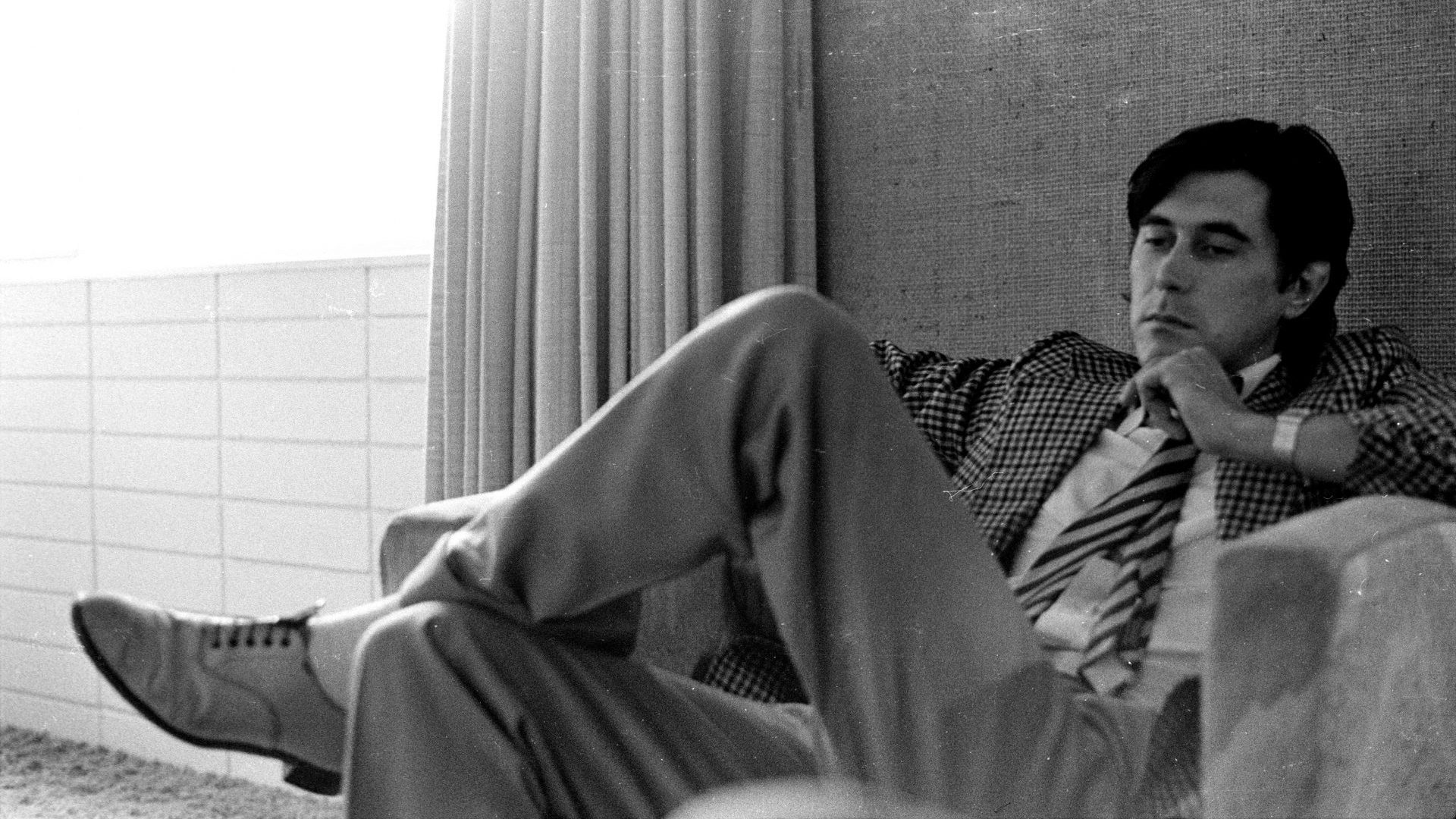Older, greyer, slower but still undeniably dapper, possibly the only lounge lizard to have been born in County Durham will sidle back on stage this autumn as Bryan Ferry reunites with Roxy Music for a tour celebrating 50 years since the release of their self-titled debut album.
It is another stop as the 76-year-old nears the end of what he recently described as “a musical journey that can take you to unexpected places. There’s always somewhere else to go.” But where Ferry and Roxy will be heading back to, apart from the past, is Europe.
Ferry may have worn his American influences on his impeccably well-tailored sleeve – rock’n’roll, pop art, Cole Porter and Humphrey Bogart – and has latterly reinvented himself as an English country gent, but Roxy owe a sizeable debt to European culture. It’s hiding in plain sight from track one, side one of that eponymous debut, where on Re-Make/Re-Model, Andy McKay’s saxophone blares out a snatch of Wagner’s Ride of the Valkyries. With all due respect, you didn’t get that sort of thing from The Sweet.
Ferry has spoken of a “whole world of creativity” opening up for him at
grammar school, but like his former Roxy colleague Brian Eno, who is not
joining the reunion, it was an art school education which gave him the facility and licence to cherry-pick inspirations from an eclectic range of sources.
Ferry studied fine art at Newcastle University under Richard Hamilton and while the pop art pioneer had close links to American practitioners like Andy Warhol, he was also, Ferry has said, “a thoughtful disciple” of Marcel
Duchamp, the title of whose conceptual sculpture The Bride Stripped Bare By Her Bachelors, Even, Ferry would later abridge and use as a solo album title. “Duchamp was always about reason and thought and ideas,” Ferry told Another Man magazine in 2020. “He created some incredibly interesting pieces and then it was: ‘I don’t really need to create any more’, like he’d rather cleverly said all he wanted to say and didn’t need to impress anybody… There’s a mystery in Duchamp, which there is in Billie Holiday and Charlie Parker and Jimi Hendrix.”
The singer has also name-checked French chanson, Weimar Berlin, Antonioni, de Chirico, Jean-Luc Godard, Alain Resnais, Claes Oldenburg, Goethe and Manet as reference points, managing to shoehorn La Goulue, Nijinsky, the Mona Lisa and Guernica into the lyrics of just one song, 1973’s Do the Strand.
His relationship with French-Russian model Amanda Lear, seen taking her pet black panther out for a walk on the cover of 1973’s For Your Pleasure, brought Roxy into the orbit of Salvador Dalí, but the meeting was a disappointment. “We met in a Paris hotel. Nothing much happened, nothing
much was said. It was very much a pose-fest,” remembered Eno. Ferry was more dismissive, saying that the surrealist was “someone who hangs around with bands just to get publicity”.
Yet the world occupied by the likes of Lear and Dalí seemed to draw Ferry
closer and closer during the 1970s. Bequiffed and sporting eye makeup and a black rhinestone shirt behind his keyboard when Roxy burst on to the scene with Virginia Plain, by 1974 Ferry was out front in a white tuxedo, increasingly with the air of a man who has just exited a Monte Carlo casino at 3am. The cover models were European – a girlfriend and a sister of members of krautrock giants Can in their underwear on the front of 1975’s Country Life – and so were Bryan’s cigarettes; Gitanes and St Moritz. He even appeared on European TV, taking a role as a louche rock singer in an 1980 episode of French mini-series Petit déjeuner compris, puffing away on his usual Dunhill.
By then, following a hiatus, Roxy Music were becoming increasingly slick,
embracing airless Euro-disco with the release of singles Angel Eyes (1979) and
Same Old Scene (1980). By 1982’s Avalon, the band’s style had evolved into a highly polished, elegiac/melancholic pop-rock, which worked for that particular record, creating a template that Ferry airbrushed and still mines today.
Like David Bowie, Ferry’s obsession with things European has occasionally
led him into trouble. There were mutterings about his Country Life-era
clothes, styled by Anthony Price, and further allusions to the aesthetic appeal of totalitarianism were evidenced in the video to 1978 solo single Sign of the Times and the 1980 Roxy album Flesh + Blood, whose cover bore a distinct resemblance to Leni Riefenstahl’s female javelin throwers in Olympia (1936).
Then, in 2007, the then 61-year-old put his foot in it with his remarks about Nazi presentational skills, saying: “The way that the Nazis staged themselves
and presented themselves, my Lord! I’m talking about the films of Leni
Riefenstahl and the buildings of Albert Speer and the mass marches and the flags. Just fantastic – really beautiful.”
His ill-judged comments were greeted in the press with outrage and also hit the singer’s pocket, as M&S dropped the singer as a model for their Autograph range of clothing. Ferry apologised profusely for the comments, but revisited them some years later in 2010, saying: “It was unbelievable. Yes,
I agree, it IS good art, as art. I couldn’t believe the fuss, it was staggering. It led to a lot of grief… In fact, you can’t like music to the degree that I do without being totally immersed in Jewish culture, and Black culture for that
matter, whether it’s the songs of Broadway, or jazz, or any of the great strands of American music.”
Ferry has continued on similar themes in recent years, occasionally making barbed remarks about “left-wing bitterness” and “political correctness”, especially when it comes to the ban on fox hunting that so upset his son Otis, a master of the South Shropshire Hunt. You might have strong suspicions about which way he voted in the 2016 referendum, although Ferry has declined to say, only calling the fallout “a very confusing time”.
But whatever Bryan Ferry might believe, he has already summed up what many think of the European Union; about the continent itself; on the immortal Song For Europe from 1973’s Stranded, written as Britain was entering the EEC and referencing the annual competition to find a potential
Eurovision winner.
Though most would consider Sofia Coppola’s use of Avalon’s lead single More Than This in her 2003 arthouse hit Lost in Translation as the high point of Ferry’s music in the movies, for me, Rainer Werner Fassbinder’s choice of A
Song for Europe to play in its entirety in In a Year of 13 Moons (1978) is the most purposeful, the life of transsexual Elvira (Volker Spengler) unravelling as the tune grows in volume and tragic power.
Ferry sings of shadows cast by Notre Dame upon the Seine, of a gondola gliding under Venice’s Bridge of Sighs, before concluding:
“I remember
All those moments
Lost in wonder
That we’ll never
Find again
There’s no more time for us
Nothing is there
For us to share
But yesterdays”
Stephen Arnell is a film and TV writer/ producer and culture commentator whose journalistic credits include The Spectator



